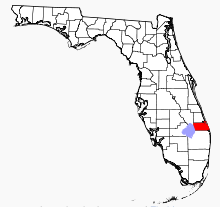Image


"We decided for the kind of money these people are asking us, we would be better off doing this on our own," said Kevin Kryzda, the county's chief information officer. "That is different from anybody else. And then we said we would like to do a loose association to provide broadband to the community while we are spending the money to build this network anyway. That was unique, too." The new project will use a contractor to build a fiber network throughout the county and a tiny rural phone company willing to foot part of the bill in return for permission to use the network to grab customers of broadband service. The combined public-private network would not only connect the sheriff's office, county administration, schools and hospitals, but also would use existing rights of ways along major highways to run through Martin's commercial corridors.Michael Pollick correctly notes that Florida is one of the 18 states that preempt local authority to build broadband maps. However, they incorrectly believe that Martin County is unique in its approach. As we have covered in the past, a number of counties are building various types of broadband networks. This is also not the first time we have seen a local government decided to build a broadband network after it saw a potential employer choose a different community because of the difference in broadband access. From there, Michael Pollick and Doug Sword team up for "County faces a fiber-optic opportunity" discussing Sarasota County. Here, the original thought was to use fiber to coordinate traffic lights but they will use extra capacity for economic development.
 The local government uses a Comcast I-Net but that is not available to businesses who are stuck with overpriced and underpowered connections from incumbents:
The local government uses a Comcast I-Net but that is not available to businesses who are stuck with overpriced and underpowered connections from incumbents:
"Businesses upload stuff, while consumers download," said Rich Swier Jr., who works from a Central Avenue office where the only service comes from Comcast. Swier, the only entrepreneur on the Sarasota Broadband Task Force, is not happy with what he gets from Comcast. "They are repackaging a consumer grade service as a business service and charging three times more." Swier is paying about $200 per month for what is supposed to be 50 megabits per second download and 5 megabits up. But in reality, it operates at half those speeds, he said.For the time being, it appears that the county is mostly focused on some form of dark fiber approach using the conduit it has been opportunistically placing over the past 10 years. Doug Sword wrote, "Municipalities butt heads with telecom companies," a look at Wilson's Greenlight network . It also covers the moaning of Fortune 500 company Time Warner Cable, which apparently is somehow at a disadvantage against a small city. (A reality check on TWC's claims about pole attachment fees.)
Wilson's decision to go into the broadband business was also spurred by the city's need to make up for the near demise in the 1990s of a pair of mainstay industries, textile and tobacco. The feeling is that whatever the city's economic future holds, having ultra-fast broadband will help it get there. "The way we see it, you're going to have haves and have-nots in the next generation broadband world," Bowman said. "The fact is we wanted to invest in our own future; that's why we did this."And finally, the Pollick / Sword duo discussed Lafayette's successes in "Dark lines are a draw for business." They note another economic development win for LUS Fiber:
Pixel Magic has since decided to maintain an office in Lafayette and plans to eventually employ 100 to 200 people there. “The fact that we have the high-speed Internet between here and there is a big plus so we can show the clients the work in progress — production companies and studios,” said Ray Scalice, Pixel Magic's general manager. … Before picking Lafayette, Pixel Magic “was looking at New Orleans and found this was just a better deal and the fiber had a lot to do with it,” said company spokesman Patrick Flanagan. “Downloading a film frame, we are getting speeds of two, three seconds per frame.”This is a good series of articles at accurately shows the total disconnect between what private companies are offering for broadband (they keep claiming we do not need anything better) and what forward-thinking communities are doing to take advantage of the disconnect.
